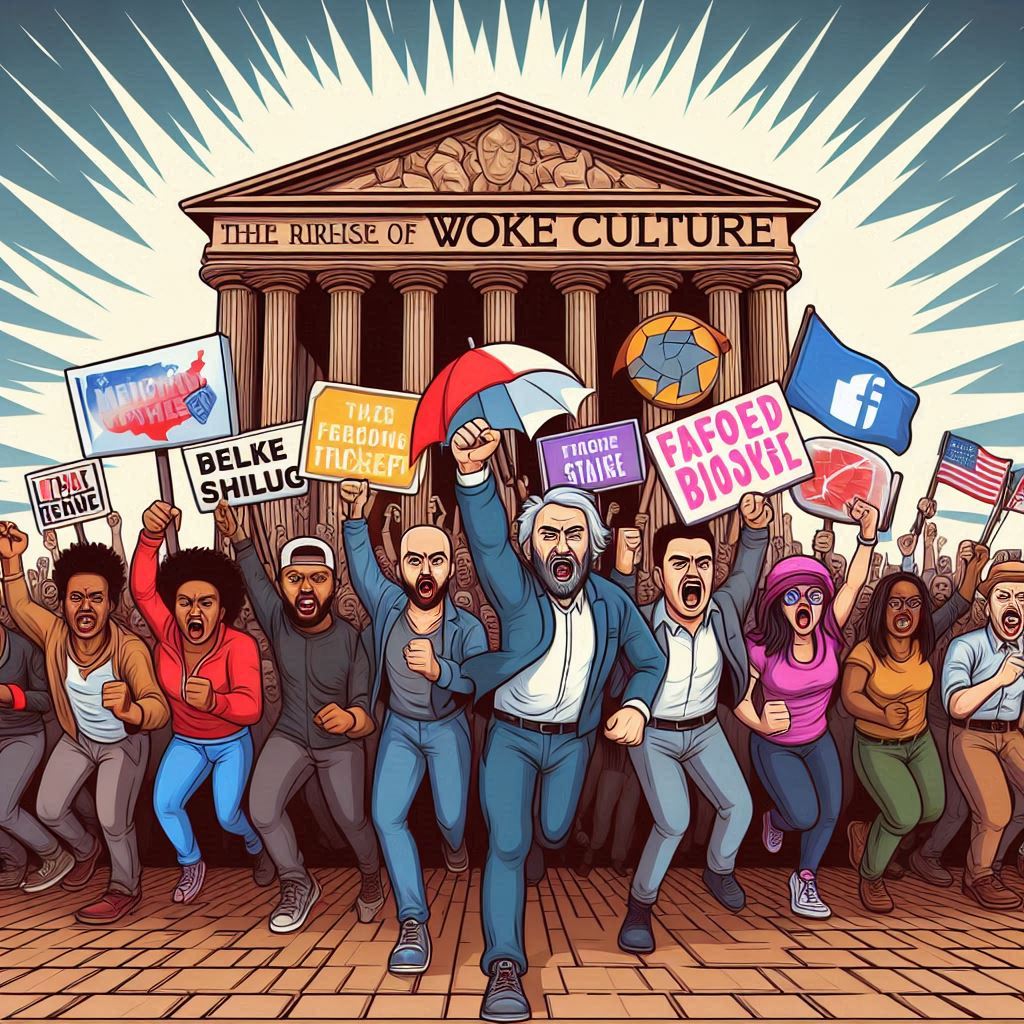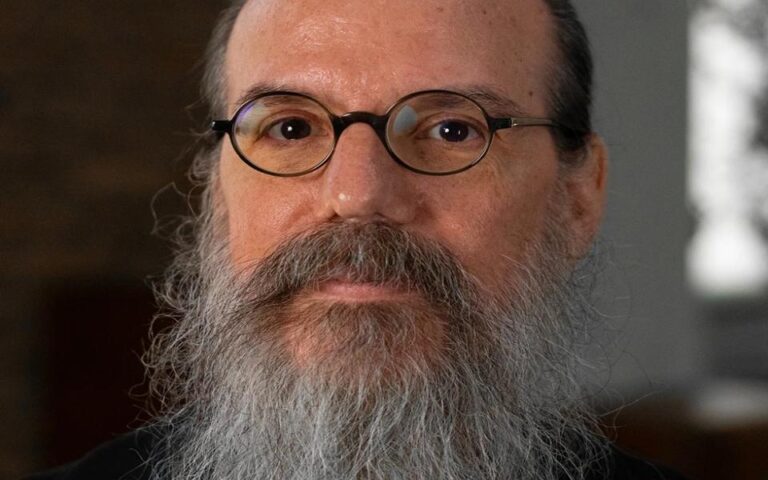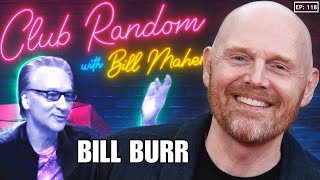The Rise and Backlash of Woke Culture: How It’s Shaping Politics, Media and Society
Introduction
Woke culture has become one of the most talked-about phenomena in recent years, sparking both admiration and criticism across various segments of society. Initially rooted in a desire to promote social justice and equality, wokeness has since evolved into a cultural force that influences politics, media, and even the economy. However, as woke culture has grown in prominence, so too has the backlash against it. This divide is increasingly shaping public discourse and raising questions about the future of wokeness in a rapidly changing world.

What is Woke Culture?
The term “woke” originally emerged as a call for awareness about social injustices, particularly those related to race. Over time, it has come to represent a broader set of progressive values, including gender equality, environmental justice, and LGBTQ+ rights. Woke culture encourages individuals and institutions to actively challenge societal norms that perpetuate inequality and discrimination. However, as the concept has gained traction, its meaning has become more complex and, at times, contentious.
Wokeness in Modern Politics
Woke culture has significantly influenced modern politics, with many progressive politicians embracing its ideals. Wokeness has become a key element of the political left, shaping policies related to social justice, climate change, and economic inequality. Political figures who align themselves with woke values often appeal to younger, more progressive voters who see wokeness as a necessary response to systemic issues. However, this alignment has also led to divisions within political parties, particularly when it comes to balancing progressive ideals with broader electoral appeal.
The Backlash Against Woke Culture
As wokeness has grown, so too has the backlash against it. Anti-woke sentiment often stems from concerns about free speech, political correctness, and the perceived overreach of progressive values. Critics argue that wokeness stifles open dialogue and imposes a rigid set of beliefs on society. This backlash has been fueled by a diverse group of individuals and movements, ranging from conservative political figures to cultural commentators. The media has played a crucial role in amplifying these voices, often portraying wokeness as a divisive and polarizing force.
Wokeness and Its Impact on the Democratic Party
The Democratic Party has seen a significant shift in recent years as it grapples with the influence of woke culture. On one hand, wokeness has energized the party’s progressive base, leading to the adoption of policies aimed at addressing systemic inequalities. On the other hand, this shift has created tensions within the party, particularly among more moderate members who worry that wokeness could alienate key voter demographics. These internal conflicts have played out in recent elections, where the role of wokeness in shaping the party’s platform has been a topic of intense debate.
The Role of Media in the Woke Debate
Media outlets have been instrumental in shaping the public’s perception of wokeness. While some outlets celebrate woke culture as a positive force for change, others criticize it as a threat to free speech and traditional values. Social media platforms have further amplified these debates, with algorithms often prioritizing content that generates strong reactions. This has led to the creation of echo chambers where individuals are exposed primarily to views that reinforce their existing beliefs, further polarizing the discussion around wokeness.
The Cultural Divide: Wokeness vs. Traditional Values
The rise of woke culture has highlighted a deep cultural divide between progressive and conservative values. For many, wokeness represents a challenge to traditional norms and beliefs, particularly when it comes to issues like gender roles, family structures, and religious values. This clash has led to heated debates about the role of wokeness in shaping societal norms and the extent to which it should influence public policy. The tension between these opposing viewpoints has significant implications for the future of social cohesion.
Public Perception of Wokeness
Public opinion on wokeness varies widely, with significant differences across demographic lines. Younger generations, particularly Millennials and Gen Z, are more likely to embrace woke ideals, viewing them as essential for creating a more just and equitable society. In contrast, older generations often express skepticism or outright opposition to wokeness, citing concerns about political correctness and the erosion of traditional values. These generational divides are also influenced by factors such as race, gender, and socioeconomic status, making the public perception of wokeness a complex and multifaceted issue.
The Economic Impact of Wokeness
Woke culture has also had a notable impact on the economy, particularly in the realm of corporate branding and marketing. Companies that align themselves with woke values often appeal to socially conscious consumers who prioritize ethics and inclusivity in their purchasing decisions. However, this alignment also comes with risks, as businesses must navigate the potential backlash from consumers who view woke branding as insincere or pandering. The financial consequences of embracing or rejecting woke culture can be significant, influencing everything from brand loyalty to stock prices.
Wokeness and Higher Education
Higher education has been a major battleground for woke culture, with universities often at the forefront of debates over free speech, diversity, and inclusion. Wokeness has influenced everything from curriculum design to campus policies, leading to both praise and criticism. Supporters argue that woke principles are essential for creating an inclusive educational environment, while critics claim that they can stifle academic freedom and open dialogue. These debates have had a profound impact on the culture of higher education, shaping the experiences of students and faculty alike.
Wokeness and Social Justice Movements
Wokeness is deeply intertwined with social justice movements, providing a framework for addressing systemic inequalities. Activists have used woke ideals to advocate for a range of issues, from racial justice to climate action. The impact of wokeness on social justice is evident in the way it has shaped public discourse, influencing everything from protest strategies to policy proposals. However, the relationship between wokeness and social justice is not without its challenges, as activists must balance the pursuit of radical change with the need for broad-based support.

The Global Perspective on Woke Culture
Wokeness is not confined to the United States; it has also influenced social justice movements worldwide. However, the way wokeness is perceived and practiced varies across different cultures, with some embracing it more readily than others. In countries with different social and political contexts, wokeness may take on unique forms, reflecting local issues and values. This global perspective on wokeness highlights the diversity of approaches to social justice and the challenges of translating woke ideals across cultural boundaries.
**Case Study: The Impact of WokenessIt seems that the conversion of the article into a blog post got interrupted. Let’s resume from where it left off:
Case Study: The Impact of Wokeness on Education
One of the most contentious areas where wokeness has made its mark is in education, particularly in universities. The influence of woke culture in academia can be seen in the push for more inclusive curriculums that reflect diverse perspectives, the adoption of policies that promote equity on campuses, and the debate over the role of critical race theory in education.
In many universities, the principles of wokeness have led to changes in how subjects like history, literature, and social sciences are taught, with a greater emphasis on marginalized voices and the systemic factors that contribute to inequality. While these changes are seen as necessary and progressive by supporters, they have also sparked significant backlash. Critics argue that the emphasis on woke ideals can stifle intellectual diversity and open dialogue, leading to a climate of self-censorship where only certain viewpoints are acceptable.
The debate over wokeness in education is further complicated by the controversy surrounding free speech. As universities strive to create safe and inclusive environments, there is growing concern about the potential for woke policies to infringe on academic freedom. The challenge for educators is to strike a balance between fostering an inclusive learning environment and upholding the principles of free speech and open inquiry.
The Future of Woke Culture
As society continues to grapple with the implications of wokeness, several possible trajectories for the movement emerge. Wokeness could continue to grow in influence, shaping the cultural and political landscape for years to come. Alternatively, it could face a decline as public backlash intensifies and new social movements emerge.
One potential challenge for the future of woke culture is its sustainability in an increasingly polarized society. As the backlash against wokeness grows, there is a risk that the movement could become further marginalized, with its supporters and detractors retreating into their respective echo chambers. This could lead to a situation where meaningful dialogue and compromise become increasingly difficult, further entrenching societal divisions.
Another possibility is that wokeness could evolve, adapting to new social and political realities. As the movement matures, it may become more nuanced, with a greater emphasis on practical solutions to the issues it seeks to address. This could involve a shift away from some of the more polarizing aspects of wokeness and a focus on building broader coalitions for change.
Critiques of the Woke Movement
Woke culture has faced a wide range of criticisms, from concerns about its impact on free speech to questions about its effectiveness in promoting social change. One of the most common critiques is that wokeness can be overly dogmatic, with a tendency to label dissenting opinions as problematic or harmful. This has led to accusations that the woke movement is intolerant of diversity of thought, creating a culture where individuals feel pressured to conform to a particular set of beliefs.
Another criticism is that wokeness can be performative, with individuals and institutions adopting woke language and symbols without making meaningful changes to address the underlying issues. This has led to accusations of “virtue signaling,” where the appearance of being woke is valued more than the actual work of promoting social justice.
In response to these critiques, supporters of wokeness argue that the movement is necessary to address deep-seated injustices and that the criticisms often come from those who are uncomfortable with the challenges that wokeness poses to the status quo. They also point out that, like any social movement, wokeness is evolving, and that it is important to engage in constructive dialogue to ensure that it remains effective in promoting positive change.
The Intersection of Wokeness and Identity Politics
Wokeness is closely tied to issues of identity, particularly in its focus on the experiences and struggles of marginalized groups. The movement emphasizes the importance of recognizing and addressing the ways in which race, gender, sexuality, and other aspects of identity intersect to create unique forms of oppression and privilege.
This focus on identity politics has been both a strength and a source of controversy for the woke movement. On one hand, it has helped to bring attention to the experiences of marginalized groups and to highlight the ways in which systemic inequalities are perpetuated. On the other hand, it has also led to criticism that wokeness can be divisive, with some arguing that it places too much emphasis on differences rather than commonalities.
The challenge for the woke movement is to find a way to address these concerns while continuing to advocate for the rights and needs of marginalized groups. This will require a careful balancing act, as the movement seeks to build broader coalitions for social change while remaining true to its core principles.
Conclusion
Woke culture is one of the most influential and controversial social movements of our time. It has reshaped the way we think about issues like race, gender, and social justice, and has had a profound impact on everything from politics to education to corporate branding. However, it has also sparked significant backlash, with critics arguing that it stifles free speech and promotes division.
As we look to the future, it is clear that the debate over wokeness is far from over. Whether the movement continues to grow in influence or faces a decline will depend on how it navigates the challenges it faces, including the need to engage with critics and to find common ground with those who may not fully embrace its ideals. Ultimately, the future of wokeness will be shaped by the ongoing struggle to create a more just and equitable society, and by the willingness of individuals and institutions to confront the difficult questions that this struggle entails.
4o






